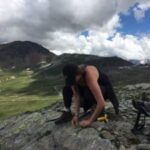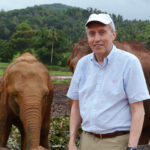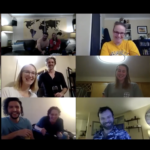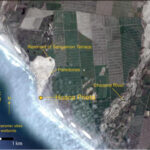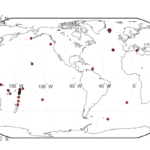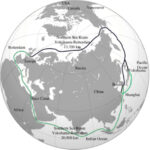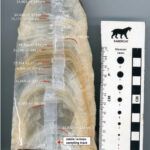Author
Maya Sandal ’21: Life-changing field work in the Italian Alps
Jan. 5, 2021—Maya Sandal ’21 in the Italian Alps In August 2019, Maya traveled with professor Dan Morgan to Italy’s Northern Alps. The two collected rock samples to aid in research on deglaciation in the area. Maya went hiking, worked with students and professors from the local university, and learned about glacial geology. After returning to Vanderbilt,...
College of Arts and Science Faculty Elected to American Academy of Arts and Sciences
Jan. 5, 2021—Two members of the College of Arts and Science faculty—Distinguished University Professor Houston A. Baker and University Distinguished Professor George Hornberger—have been elected to the American Academy of Arts & Sciences (AAAS). Founded in 1780 by John Adams and John Hancock, among others, the AAAS has previously elected luminaries and leaders such as Benjamin Franklin, Alexander Hamilton, Ralph Waldo Emerson,...
Virtual Gatherings: Grad student in Earth & Environmental Sciences keeps group hangouts on schedule
Jan. 5, 2021—Graduate students in Earth and Environmental Sciences continue their tradition of weekly hangouts through video calls Each week, graduate students in Earth & Environmental Sciences look forward to an informal get-together at KayBob’s, a local watering hole in Hillsboro Village, to talk shop and get some downtime with peers outside the classroom. When COVID-19 threw...
Analysis of ancient teeth reveal clues about how sociopolitical systems grow
Jan. 5, 2021—Scientific analysis of the distinct eating habits of two societies in northern Peru 6,000 years ago has allowed a team of Vanderbilt researchers to draw new conclusions about how complex sociopolitical structures took shape in ancient Andean societies. The article, “Early specialized maritime and maize economies on the north coast of Peru” was published in the journal Proceedings of...
NASA-funded project uses images from space to study underwater volcanoes
Jan. 5, 2021—https://youtu.be/dp0CKCOgtns Vanderbilt Earth scientists have received funding from NASA to use satellite imagery to examine underwater volcanic eruptions’ ripple effect on the planet’s atmospheric processes. According to Kristen Fauria, assistant professor of Earth and environmental sciences, more than 80 percent of volcanic eruptions occur in the oceans. Despite their significant impact on the environment, she said,...
Vanderbilt scientists awarded NSF grant to examine the future of international shipping in the Arctic Ocean
Jan. 5, 2021—As the Arctic Ocean becomes less icy as a result of a warming climate, it could prove to be a viable—and more convenient—shipping route for global logistics companies. To determine the feasibility of navigating the challenging Arctic environment, Hiba Baroud, assistant professor of civil and environmental engineering, and Ralf Bennartz, professor of earth and environmental sciences, in...
Geochemical analysis from the last ice age may hold clues for future climate change and preparedness strategies
Jan. 5, 2021—“Stalagmites from Lake Shasta Caverns (LSC) – located in northern California within an important transitional climate zone between the Pacific Northwest and southwestern United States – hold geochemical clues to help researchers understand how climate changed during the end of the last ice age (14,000 – 37,000 years ago) and predict what may happen amid climatic changes...
Prof. David Furbish and PhD student Kelsea Best follow up on Bernard K. Forscher’s 1963 essay, Chaos in the Brickyard
Jan. 5, 2021—The authors of The Brickyard in 2020 (David Furbish, Douglas Jerolmack and Rachel Glade) offer an updated view of the state of affairs in the brickyard described in B. K. Forscher’s popular 1963 allegorical letter to Science, “Chaos in the Brickyard.” It calls for a need to realign the research endeavor, institutions and incentives with...
EES has vanquished the GRE from our graduate application process!
Jan. 5, 2021—Students will no longer be required to take the GRE exam or report scores when applying to our graduate program! #GRExit We have also reduced the university’s graduate application fee from $95 to $20. Both steps are in support of equity and inclusion in geoscience graduate education!
Jonathan Gilligan helps fight COVID-19 in Latin America
Dec. 16, 2020—Vanderbilt’s College of Arts and Science has long had connections to Latin America. Through the Center for Latin American Studies, the work of Latin American specialists in departments such as history and anthropology, and numerous student and faculty research trips, the college has forged strong ties to the region, its universities, and its people. So as the novel coronavirus...
